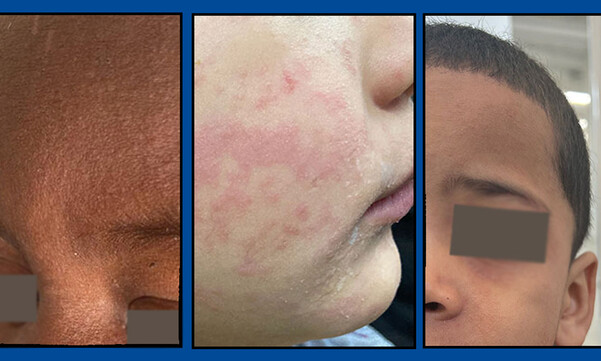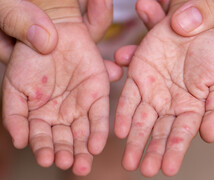We all need vaccines throughout our lives to prevent dangerous, painful illnesses. Stay up to date on one of the easiest ways to stay healthy.
Childhood Vaccines
A standard series of immunizations protects children from serious infectious illnesses. Durham Pediatrics nurse practitioner Kathleen Murphy, CPNP, says these vaccines are part of routine well visits to a child’s pediatrician, between birth and high school graduation. As long as you keep up with regular well visits, your child’s pediatrician will make sure the proper schedules are followed for:
- Hepatitis B
- DTaP (diphtheria, tetanus, and pertussis)
- Hib (Haemophilus influenzae type b)
- Pneumococcal conjugate
- Polio
- Rotavirus
- MMR (measles, mumps, and rubella)
- Varicella (chickenpox)
- Hepatitis A
- HPV (human papillomavirus)
- Meningococcus
- Flu
Adult Vaccines
If you aren’t sure about the vaccines you received during childhood, talk to your doctor who can help determine whether you need to play catch up. Some vaccines given in childhood and adolescence are also recommended for adults who have certain medical, occupational, or lifestyle risk factors, explains Jennifer Turnbull, MD, a family medicine doctor at Triangle Family Practice in Durham. For most adults, only a handful of vaccines are recommended.
- The HPV vaccine is now recommended for all teens—young men and women alike—to prevent infection by the strain of HPV that can cause cervical cancer. In males, this vaccine can prevent penile, anogenital, and oral pharyngeal cancers. Women can receive the vaccine up to age 26. After that, current research shows that you’re better off preventing cervical cancer through regular checkups with your gynecologist. Males are eligible for the vaccine up to age 21.
- The shingles vaccine is reserved for people who are 60 or older to help prevent this painful revival of the chicken pox virus that otherwise lies dormant in the body after the original infection resolves. The vaccine is not currently recommended for younger adults because shingles is more common and more severe in older people.
- The pneumonia vaccine is recommended after age 65, or earlier if you have risk factors such as smoking.
- The Tdap vaccine, which is a booster of the childhood DTaP vaccine, is recommended every 10 years, especially to protect adults against tetanus. Women of childbearing age should have the Tdap vaccine with each pregnancy to protect the new baby against pertussis.
- The flu vaccine is recommended every year for almost every child and adult. This vaccine, in particular, is declined by many people because of the misconception that the flu shot can give you the flu. In fact, a dead virus can’t infect anything—and the flu vaccine is made up of dead virus particles. The flu vaccine isn’t a guarantee against influenza, but it can help you have a milder case than if you had not been vaccinated.





